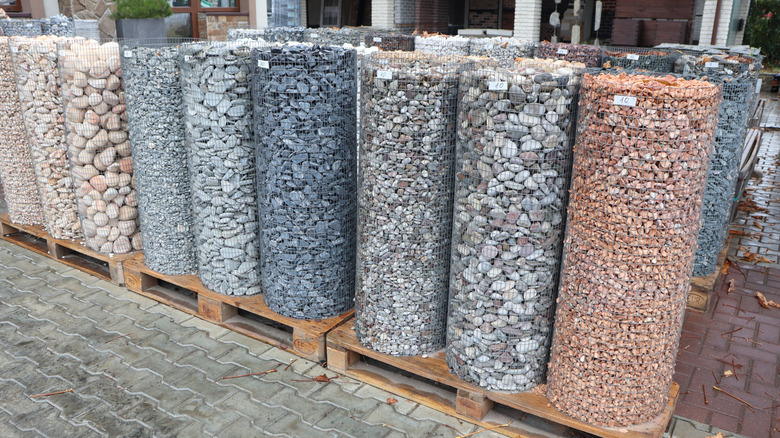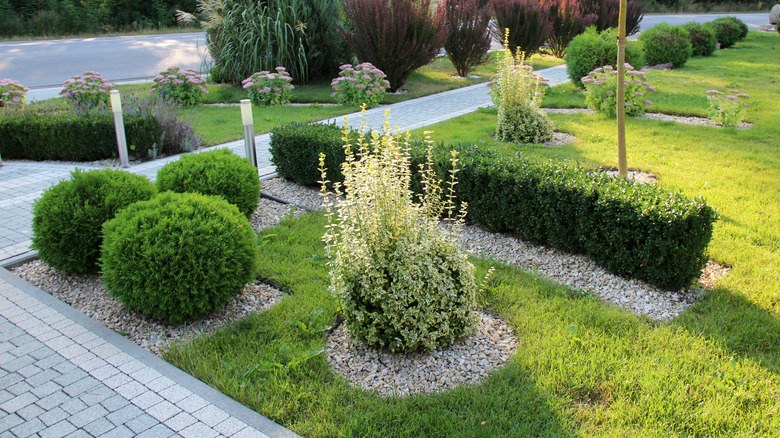The Hard-To-Install Gravel That's Worth The Effort For Better Drainage
If you're looking for better mulch options that will improve drainage, gravel could be your answer. Unlike organic mulches, such as bark or straw, inorganic mulches like gravel last longer while also offering better drainage. Once you've committed to installing gravel, you will need to decide which type. There are many ways you can use gravel in your yard, and the rocks come in a variety of different colors and sizes as well. Although more challenging to install at first, river rock can make a beautiful addition to your outdoor spaces while still offering better drainage than organic mulch and smaller pieces of gravel.
Many homeowners choose river rocks for their landscape beds and as accents because of the large stones that are known for their attractive earth tones. It's most often used for lining pathways, in garden beds, and around creek beds to add visual interest while promoting better drainage. With that said, river rock is also the most expensive and hardest type of gravel to install because of the weight of the stones. Of course, the sizes of these stones can arguably be a downside of this type of gravel, too. Most river rock stones average 1 to 3 inches in diameter. Depending on the scope of your project, you might need just a few or several bags of this heavy gravel. Gathering the stones and installing them can require special tools and a lot of labor. Also, once you've placed the river rock down, you may need to move some of the individual stones around so there's a more even and visually-appealing surface.
The benefits of river rock may outweigh the hard work upfront
Another thing to note: when compared with other types of inorganic mulch such as crushed gravel, river rock is not compact and can shift and fall out of place after it rains. The risk is particularly greater on areas of your yard with slopes, or if you place the rocks near gutters. You can help remedy this by adding landscape fabric underneath to help keep the gravel and underlying soil in place while also temporarily suppressing weeds. This is arguably yet another step you'll need to take when working on a river rock project for your yard, but the upfront effort will be well worth it in the long run because it will reduce the need for having to constantly place the stones back in their beds.
Despite all the work required upfront, the benefits of river rock can outweigh any downsides if you're wanting to use gravel for better landscaping drainage and are looking for something attractive that will last for years to come. Unlike organic plant mulch, river rock serves a better purpose for aesthetic benefits and drainage because it doesn't hold water. River rock is also ideal in drier environments and in gardens with plants that don't need a lot of water. As a rule of thumb, river rock used for plant mulching purposes should be paired with established plants, trees, or shrubs over delicate plants, as these stones are larger than traditional gravel. Further, river rock is a more permanent option. Compare this to organic mulch, which usually needs to be replaced every year – meaning more work in the long run — and these rocks are a clear winner.

